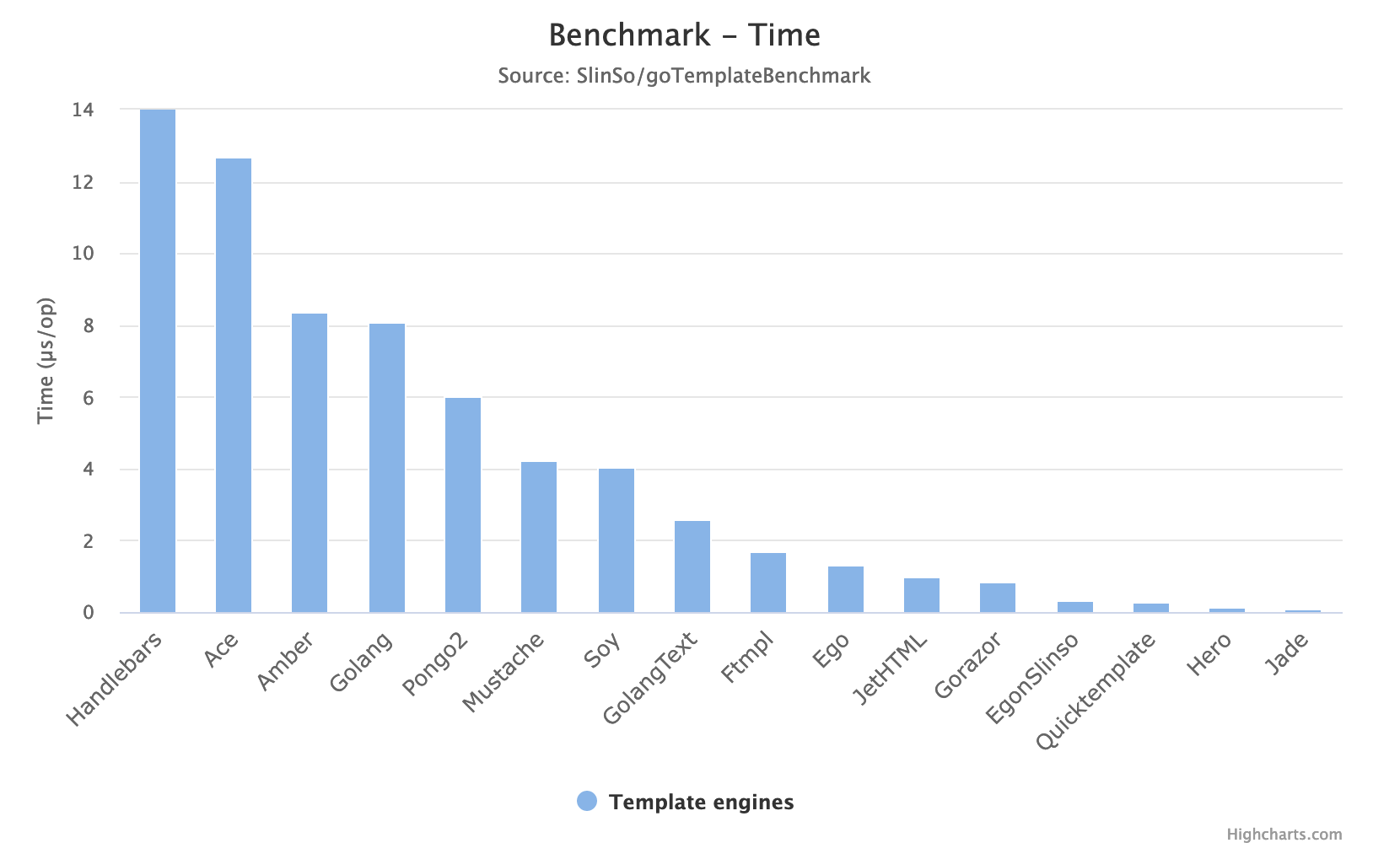This is a forked version of the original jocker/jade repo that implements a fix (Joker/jade#57) allowing to deal with nested mixin blocks.
Package jade (github.com/Joker/jade) is a simple and fast template engine implementing Jade/Pug template.
Jade precompiles templates to Go code or generates html/template.
Now Jade-lang is renamed to Pug template engine.
example:
//- :go:func Index(pageTitle string, youAreUsingJade bool)
mixin for(golang)
#cmd Precompile jade templates to #{golang} code.
doctype html
html(lang="en")
head
title= pageTitle
script(type='text/javascript').
if(question){
answer(40 + 2)
}
body
h1 Jade - template engine
+for('Go')
#container.col
if youAreUsingJade
p You are amazing
else
p Get on it!
p.
Jade/Pug is a terse and simple
templating language with
a #[strong focus] on performance
and powerful features.becomes
<!DOCTYPE html>
<html lang="en">
<head>
<title>Jade.go</title>
<script type="text/javascript">
if(question){
answer(40 + 2)
}
</script>
</head>
<body>
<h1>Jade - template engine
<div id="cmd">Precompile jade templates to Go code.</div>
</h1>
<div id="container" class="col">
<p>You are amazing</p>
<p>
Jade/Pug is a terse and simple
templating language with
a <strong>focus</strong> on performance
and powerful features.
</p>
</div>
</body>
</html>Here are additional examples and test cases.
Install jade compiler
go install github.com/Joker/jade/cmd/jade@latestor github.com/Joker/jade package
go get -u github.com/Joker/jadejade -writer -pkg=main hello.jadejade command1 precompiles hello.jade to hello.jade.go
hello.jade
:go:func(arg) word string
doctype 5
html
body
p Hello #{word}!
hello.jade.go
// Code generated by "jade.go"; DO NOT EDIT.
package main
import "io"
const (
hello__0 = `<!DOCTYPE html><html><body><p>Hello `
hello__1 = `!</p></body></html>`
)
func Jade_hello(word string, wr io.Writer) {
buffer := &WriterAsBuffer{wr}
buffer.WriteString(hello__0)
WriteEscString(word, buffer)
buffer.WriteString(hello__1)
}main.go
package main
//go:generate jade -pkg=main -writer hello.jade
import "net/http"
func main() {
http.HandleFunc("/", func(wr http.ResponseWriter, req *http.Request) {
Jade_hello("jade", wr)
})
http.ListenAndServe(":8080", nil)
}output at localhost:8080
<!DOCTYPE html><html><body><p>Hello jade!</p></body></html>generate html/template at runtime
(This case is slightly slower and doesn't support2 all features of Jade.go)
package main
import (
"fmt"
"html/template"
"net/http"
"github.com/Joker/hpp" // Prettify HTML
"github.com/Joker/jade"
)
func handler(w http.ResponseWriter, r *http.Request) {
jadeTpl, _ := jade.Parse("jade", []byte("doctype 5\n html: body: p Hello #{.Word} !"))
goTpl, _ := template.New("html").Parse(jadeTpl)
fmt.Printf("output:%s\n\n", hpp.PrPrint(jadeTpl))
goTpl.Execute(w, struct{ Word string }{"jade"})
}
func main() {
http.HandleFunc("/", handler)
http.ListenAndServe(":8080", nil)
}console output
<!DOCTYPE html>
<html>
<body>
<p>Hello {{.Word}} !</p>
</body>
</html>output at localhost:8080
<!DOCTYPE html><html><body><p>Hello jade !</p></body></html>The data of chart comes from SlinSo/goTemplateBenchmark.

This filter is used as helper for command line tool
(to set imports, function name and parameters).
Filter may be placed at any nesting level.
When Jade used as library :go filter is not needed.
:go:func
CustomNameForTemplateFunc(any []int, input string, args map[string]int)
:go:func(name)
OnlyCustomNameForTemplateFunc
:go:func(args)
(only string, input float32, args uint)
:go:import
"github.com/Joker/jade"
github.com/Joker/hpp
Footnotes
-
Usage: ./jade [OPTION]... [FILE]...
↩-basedir string base directory for templates (default "./") -d string directory for generated .go files (default "./") -fmt HTML pretty print output for generated functions -inline inline HTML in generated functions -pkg string package name for generated files (default "jade") -stdbuf use bytes.Buffer [default bytebufferpool.ByteBuffer] -stdlib use stdlib functions -writer use io.Writer for output -
Runtime
html/templategeneration doesn't support the following features:
=>means it generate the folowing templatefor => "{{/* %s, %s */}}{{ range %s }}" for if => "{{ if gt len %s 0 }}{{/* %s, %s */}}{{ range %s }}" multiline code => "{{/* %s */}}" inheritance block => "{{/* block */}}" case statement => "{{/* switch %s */}}" when => "{{/* case %s: */}}" default => "{{/* default: */}}"You can change this behaviour in
config.gofile.
Partly this problem can be solved by custom functions. ↩